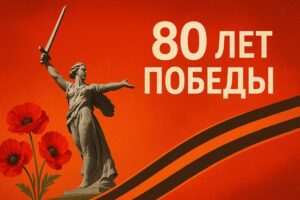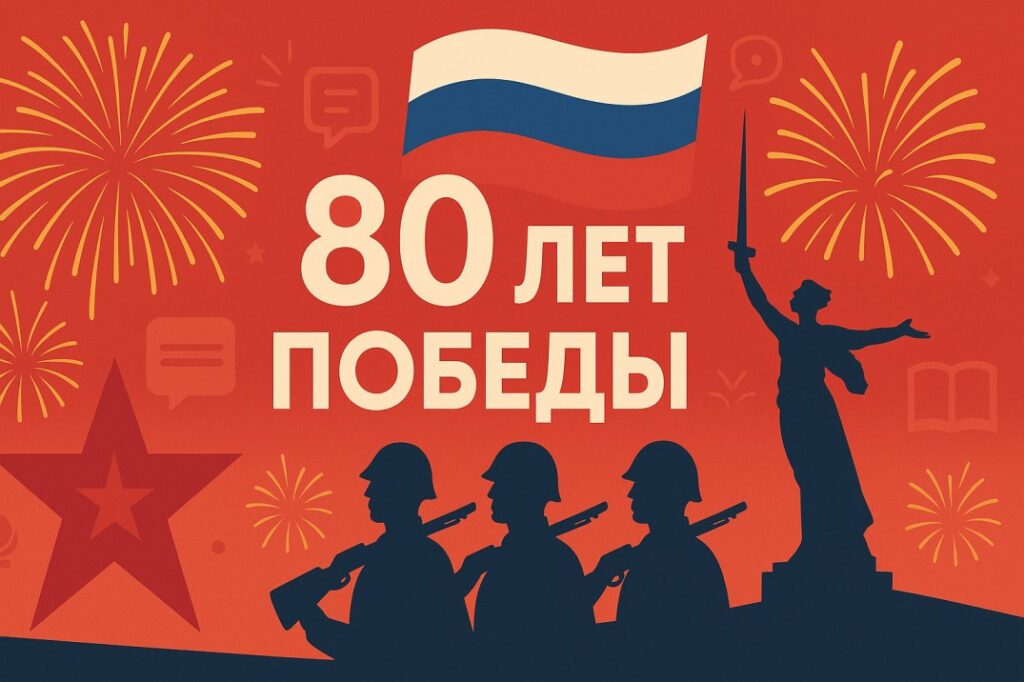On May 9, 2025, Russia and many former Soviet republics mark the 80th anniversary of Victory Day (День Победы), commemorating Nazi Germany’s surrender in 1945. Beyond remembrance, this milestone offers language learners a unique lens on Russian history, idioms and commemorative practices. Russian Victory day
Deep History of the Eastern Front (1941 – 1945)
1. Operation Barbarossa: The War’s Eastern Opening (June 22, 1941)
On June 22, 1941, Hitler unleashed Operation Barbarossa, the largest military invasion in history, with over three million Axis troops assaulting Soviet lines in three massive thrusts HISTORY.
Documentary insight: Operation Barbarossa: German Invasion of Russia | Part One ▶️ https://www.youtube.com/watch?v=Hw-VUaeNmgw YouTube
Further reading: “Operation Barbarossa: Date & Significance” on History.com (History) HISTORY
Despite initial gains—capture of Kiev and Kharkov by autumn—the Wehrmacht stalled before Moscow under logistical strains and brutal winter, marking a crucial strategic failure that reversed Germany’s fortunes Encyclopedia Britannica.
2. The Siege of Leningrad: 900 Days of Starvation (September 8, 1941 – January 27, 1944)
Germany and Finland encircled Leningrad for 872 days, inflicting mass starvation and bombardment. Estimates of civilian deaths range from 650,000 to over 800,000 Encyclopedia BritannicaHISTORY. Russian Victory day
Video overview: The Siege of Leningrad – When Hitler Used Starvation as a Weapon ▶️ https://www.youtube.com
In-depth article: “Siege of Leningrad” on Britannica Wikipedia
City lifelines across Lake Ladoga (“Road of Life”) kept factories running and evacuated vulnerable populations. The siege’s end on January 27, 1944, is commemorated annually in St. Petersburg.
3. Battle of Stalingrad: Turning the Tide (July 17, 1942 – February 2, 1943)
In one of history’s fiercest urban battles, Soviet forces encircled and defeated the German Sixth Army, capturing 91,000 troops and inflicting catastrophic losses Encyclopedia BritannicaEncyclopedia Britannica.
Documentary clip: The Brutal Battle of Stalingrad Explained ▶️ https://www.youtube.com/watch?v=RJT1ycrut8c Encyclopedia Britannica
Summary & facts: “Battle of Stalingrad” on Britannica Encyclopedia Britannica
This victory halted the German advance and set the stage for a sustained Soviet westward push. Russian Victory day
4. Battle of Kursk: The World’s Largest Tank Clash (July 5 – August 23, 1943)
At Kursk, some 2 million troops, 6,000 tanks and 4,000 aircraft clashed in the largest tank battle ever. German offensive Operation Citadel failed against deep Soviet defences, after which the Red Army seized the strategic initiative Encyclopedia BritannicaWikipedia.
Visual feature: Battle of Kursk – Kids | Britannica Kids ▶️ https://www.britannica.com/kids/article/Battle-of-Kursk/46491/related Britannica Kids
In-depth reading: “Battle of Kursk” on Britannica Encyclopedia Britannica
The defeat forced Germany onto the defensive for the remainder of the war.
5. Yalta Conference & Final Push to Victory (February 4 – 11, 1945)
Allied leaders Roosevelt, Churchill and Stalin met at Yalta (Crimea) to plan postwar Europe and the final defeat of Germany Encyclopedia Britannica. Key outcomes included the division of Germany into occupation zones and Stalin’s pledge to join the war against Japan.
Brief overview: Yalta Conference on Britannica Wikipedia
Historical context: “Yalta Conference: Definition, Date & Outcome” on History.com HISTORY
German forces unconditionally surrendered on May 8, 1945 (May 9 by Moscow time), sealing Allied victory in Europe.
Linking History & Language: Vocabulary for Victory Day
| Russian term | Transliteration | English meaning |
|---|---|---|
| День Победы | Den’ Pobedy | Victory Day |
| бессмертный полк | bessmertnyy polk | Immortal Regiment |
| вечная слава | vechnaya slava | eternal glory |
| салют | salyut | fireworks salute |
| возложение венков | vozlozheniye venkov | wreath-laying |
Pronunciation tip: Say «день» [den’] softly, and «польк» [polk] with a quick “l–k” blend.

Cultural Commemoration: Songs, Poems & Speeches
Song: “День Победы” (Victory Day) by Давид Тухманов ▶️ https://www.youtube.com/watch?v=w2Fea3b_K0Y Encyclopedia Britannica
Poem: Excerpt from Константин Симонов’s “Жди меня” (“Wait for Me”) offers stirring past-tense practice.
Speech: Watch President Putin’s 2024 address with English subtitles for formal register study. Russian Victory day
Teaching & Learning Activities
Documentary Dictation: Use YouTube clips on Barbarossa or Stalingrad for listening & dictation.
Role-Play “Immortal Regiment”: Students present biographies of relatives or historical figures in Russian.
Parade Commentary: Stream Victory Day footage and have learners narrate events live, using military vocabulary.
Conclusion
The 80th anniversary of Victory Day is both a solemn tribute and a vibrant language-learning opportunity. By exploring the Eastern Front’s epic campaigns, linking to authoritative resources and practicing commemorative vocabulary, learners gain historical insight and deepen their Russian proficiency.

